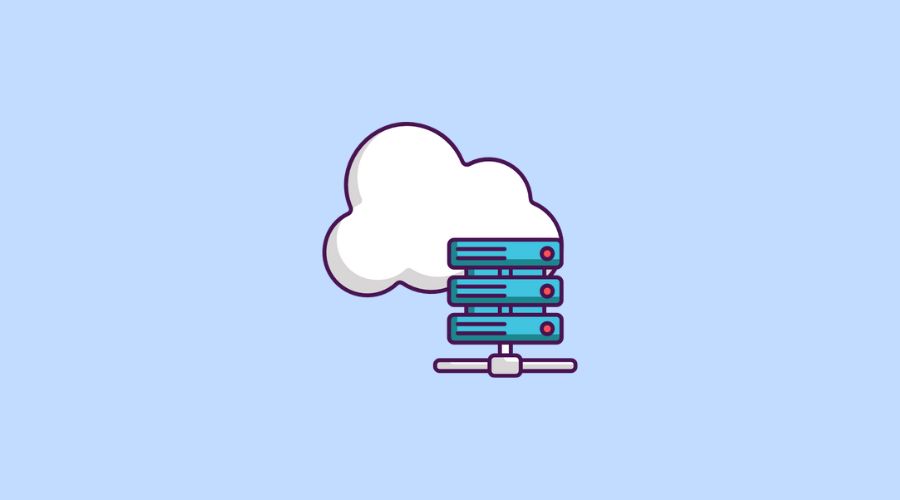5 Reasons Cloud Servers are the Future of Scalable Web Apps

Cloud computing has changed the game for growing businesses. With on-demand infrastructure, lower upfront costs, and the flexibility to scale quickly, it’s become the backbone of modern digital operations.
For web applications in particular, cloud servers offer the reliability and agility needed to keep up with rising user demand. In this article, we’ll break down the key reasons cloud servers are considered the future of web app scalability.
5 Reasons Cloud Servers are the Future of Scalable Web Apps
On-Demand Scalability
One of the most significant advantages of cloud servers is their ability to scale resources dynamically in real-time. As traffic increases or decreases, cloud platforms can automatically adjust CPU, storage, and bandwidth, ensuring that your web app always has the resources it needs. This flexibility is invaluable, especially for businesses that experience traffic spikes or seasonal variations.
For example, cloud providers like Google ClouImportanced’s Compute Engine and TensorWave’s AMD accelerators offer the ability to scale infrastructure seamlessly. Whether it’s during a product launch or a major event, dedicated cloud servers can handle spikes without compromising performance or causing downtime.
Also Read: Importance of Cloud Security Surveillance
Global Availability and Performance
Cloud servers are distributed across a global network of data centres, ensuring that your web app can be accessed from anywhere in the world with low latency. With the help of Content Delivery Networks (CDNs) and regional data centres, cloud servers bring content closer to users, which significantly improves loading times and the overall user experience.
Major cloud providers such as AWS, Google Cloud, and TensorWave have a vast global infrastructure, ensuring that your app’s performance is optimised regardless of the user’s location. This global reach is important for businesses, providing a fast and reliable web app to an international audience.
Cost Efficiency and Pay-as-You-Go Model
Unlike traditional data centres, cloud services operate on a pay-as-you-go model, where businesses only pay for the resources they actually use. This eliminates the need for large upfront investments in physical infrastructure, allowing businesses to scale up or down according to their current needs.
Top cloud providers offer flexible pricing structures that are particularly beneficial for small and medium-sized enterprises (SMEs). These businesses can start small and scale their infrastructure as they grow, ensuring they don’t waste money on unused resources.
Also Read: NippyBox Review: Is This Secure Cloud Storage Worth It?
High Availability and Reliability
For businesses aiming for rapid scalability, downtime is not an option. Best cloud hosting servers are built with high availability in mind, featuring automatic cloud backup for servers and disaster recovery protocols. These features ensure that your web app remains operational despite hardware failures or unexpected issues.
Cloud providers typically offer Service Level Agreements (SLAs) that guarantee a certain level of uptime, often 99.9% or higher. This is particularly important for web apps that need continuous operation, such as e-commerce platforms, financial applications, and social media networks.
Security and Compliance
Security is a top priority for web apps, especially as they process sensitive user data. Leading cloud providers address this with built-in protections like encryption (in transit and at rest), identity and access management (IAM), and routine security audits to maintain infrastructure integrity.
They also comply with key industry standards such as GDPR, HIPAA, SOC 2, and ISO 27001, ensuring that businesses meet regulatory requirements. Features like multi-factor authentication and automated vulnerability assessments add another layer of protection, allowing teams to focus on building and scaling without constantly worrying about security or compliance risks.
Also Read: No-Code Tools That Every SaaS Company Should Know
Key Takeaways
Cloud servers have become the backbone of modern web app infrastructure. Providing businesses with the tools to scale seamlessly, improve performance, and maintain security and compliance. The best cloud providers offer businesses:
- On-demand scalability to accommodate growing web apps.
- Global availability, ensuring optimal performance for users worldwide.
- A pay-as-you-go model, allowing businesses to scale affordably.
- High availability and automatic failover mechanisms ensure minimal downtime.
- Top-tier security and compliance features.
Cloud servers are no longer just supporting infrastructure. They’ve become a defining factor in how modern businesses scale and perform. By combining scalability, global reach, cost efficiency, and built-in security, they empower businesses to build web applications that are fast, resilient, and ready for what’s next.
